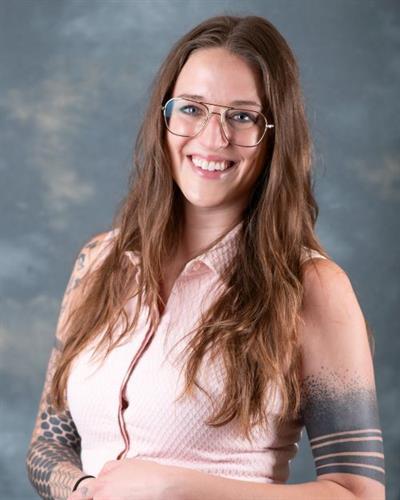
Sarah Hengel
Academic Leave

Research/Areas of Interest
Our research is interested in understanding how environmental toxicants human beings experience in our environment change our DNA. We are also interested in how the damaged DNA is repaired by proteins in our nucleus.
We are also interested and focused on the intersection of female reproductive diseases (endometriosis, primary ovarian insufficiency, and polycystic ovary syndrome) and female cancers (cervical, endometrial, uterine, and ovarian cancer).
Biography
I am enthralled and excited by understanding protein-DNA functions in cancer and normal cells.
I am an Assistant Professor at Tufts University in the Biology Department.
My work is supported internally in the Tufts Biology Department by a Merrin Fund for Faculty Excellence and a R00 from the NIEHS.
My long-term goal is to mechanistically understand the intersection of DNA repair proteins involved in DNA damage recognition and homologous recombination.
My research program is specifically focused on uncovering the underlying mechanisms of how DNA damage at replication forks is recognized by the human Shu complex and repaired by either RAD51-dependent or RAD52-dependent damage repair mechanisms.
My lab combines cell biology, biochemistry, biophysics, and single-molecule tweezers (C-trap) approaches to uncover novel insights into the mechanisms of DNA repair in aging, disease, and cancer.
Our laboratory is full with 3 PhD students and 3 undergraduates.
Check out our lab website: srhlab.com
I am an Assistant Professor at Tufts University in the Biology Department.
My work is supported internally in the Tufts Biology Department by a Merrin Fund for Faculty Excellence and a R00 from the NIEHS.
My long-term goal is to mechanistically understand the intersection of DNA repair proteins involved in DNA damage recognition and homologous recombination.
My research program is specifically focused on uncovering the underlying mechanisms of how DNA damage at replication forks is recognized by the human Shu complex and repaired by either RAD51-dependent or RAD52-dependent damage repair mechanisms.
My lab combines cell biology, biochemistry, biophysics, and single-molecule tweezers (C-trap) approaches to uncover novel insights into the mechanisms of DNA repair in aging, disease, and cancer.
Our laboratory is full with 3 PhD students and 3 undergraduates.
Check out our lab website: srhlab.com